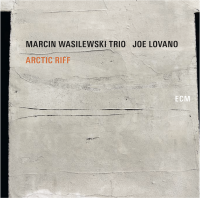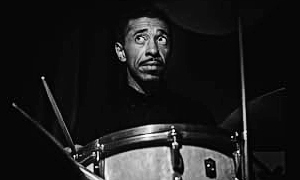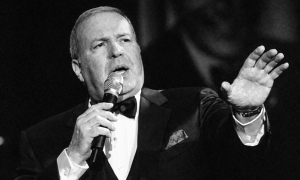Home » Jazz Articles » Book Review » Blues From Laurel Canyon: My Life As A Bluesman
Blues From Laurel Canyon: My Life As A Bluesman
 Blues From Laurel Canyon: My Life As A Bluesman
Blues From Laurel Canyon: My Life As A Bluesman John Mayall with Joel McIver
336 Pages
ISBN: #978-1785581786
Omnibus Press
2019
Blues From Laurel Canyon seems an odd assignation of a name for John Mayall's memoir, if only because that main title doesn't quite correspond to its subtitle My Life As A Bluesman. But in his very introduction to these three-hundred thirty-six pages, 'The Godfather of British Blues' clarifies the point, if only by implication, by hinting this book is only the first part of his personal chronicles (he is more clear on the subject one page from the end).
Which makes perfect sense. In the over-half century he's been playing, it is arguable that Mayall has had more famous musicians pass through his various ensembles of than any other bandleader of the genre (the late Miles Davis compares favorably in the realm of jazz). So he's got stories aplenty to tell and, with the astute assistance of Joel McIver, proffers them with candor, good humor and just enough detail to remain circumspect. The pace is always breezy but never to a fault, at least in the early going, because the writing is replete with details of names and places; it matters less whether John possesses an extremely retentive memory or a personal journal full of copious notes because he brings the reader right along with him wherever he goes.
Along those lines, he dispenses with no little alacrity his accounts of his early childhood into adolescence, taking time to point out how slowly but surely music became one of his primary focuses in life. The latter theme grows in prominence during Mayall's account of his time in the military: he made his first recordings during this interval and became progressively more active performing live as well. And, as John tells it, his early devotion to jazz almost eclipses his fascination with blues, thus placing in a much different light recordings such as Jazz Blues Fusion (Polydor, 1972), a marked departure from the steadfast purity of its predecessors.
Again, whether it's by dint of McIver's guidance or the British bluesman's own pithy sense of expression, the prose equally vividly depicts the pleasure derived from the various musical pursuits and the hardship the main author endured during his three years of national service in Korea. Even as his first marriage fractures upon embarking on his first of many dalliances, Mayall's tone remains remarkably steady throughout Blues From Laurel Canyon, so much so it bespeaks a grievous lack of self-awareness and/or an unwillingness to truly engage in honest, personal reflection. This factor is the only real flaw in this rendering of his life and times.
As a matter-of-fact, this transition from the merely circumspect to the (seemingly) overtly secretive begs the question of whether John Mayall's handling of the increasingly frequent personnel shifts in his groups go as professionally as he indicates in his dismissal of drummer Aynsley Dunbar. Certainly, the swift return of guitarist Peter Green to the Bluesbreakers fold begs some credulity: the guitarist was summarily canned mere days after joining when Eric Clapton returned from his European travel hiatus (but subsequently deigned to work with his mentor prior to founding Fleetwood Mac).
The groundbreaking bandleader never fails to place his decisions to change lineups in an almost purely musical context, yet some questions nevertheless emerge. John is as suspiciously blithe in recounting his otherwise purposeful personnel changes for his bands and while his matter-of-fact tone overall lends this book an eminently readable quality (up to a point), by the time chapter thirteen appears, My Life As A Bluesman has turned one-dimensional: descriptions of the cycle of recording, touring and band realignments are simply too similar.
Fortunately, Mayall's colorful tale(s) of the house in California he bought and remodeled ((pictured proudly within the twenty-four pages of b&w and color photos interspersed with text)provides wonderful respite from those doldrums, but, again, as in his detached recognition of the multiple awards he was garnering for his musical endeavors, the owner exhibits almost hollow remorse at the edifice's destruction by fire. Given the frugal business acumen of which he rightfully boasts, it's an oddly laissez faire attitude, one he also applies to alcohol consumption, like so many of his other indulgences, rationalized with references to the times in which they occurred: "Don't forget, it was the Seventies."
Perhaps despite his co-author's best efforts, this veteran musician's style of writing calls to mind the all too often glib and/or pedantic song lyrics such as "The Laws Must Change," from The Turning Point (Polydor, 1969). Contrary to that freshness to which the transplanted Englishman ascribes his regular rounds of songwriting—-to be fair as often as not initiated by the obligation to release new albums—the close of the book is perfunctory pure and simple, rendered all the more so by the abrupt conclusion and an outright reference to ...'the next book [he's] working on.'
It's impossible to deny the longevity of John's career, much less its influence, and those factors are redolent during most of Blues From Laurel Canyon. But considering the years he will cover in that purported next outing are populated by far less colorful and historically significant figures than guitarist Mick Taylor (who went from his own employ to that of the The Rolling Stones), so it will behoove Mayall to adhere to the progression that often evolves in a two-set musical performance, that is, to delve more deeply into the events of those years. In doing so he will elevate the enticement to read that tome and render more logical (right along the lines of an introduction) the attractions ultimately afforded by My Life As A Bluesman.
Tags
Book Review
John Mayall
Doug Collette
Omnibus Press
Miles Davis
Aynsley Dunbar
Peter Green
Eric Clapton
Fleetwood mac
Mick Taylor
Rolling Stones
PREVIOUS / NEXT
Support All About Jazz
 All About Jazz has been a pillar of jazz since 1995, championing it as an art form and, more importantly, supporting the musicians who make it. Our enduring commitment has made "AAJ" one of the most culturally important websites of its kind, read by hundreds of thousands of fans, musicians and industry figures every month.
All About Jazz has been a pillar of jazz since 1995, championing it as an art form and, more importantly, supporting the musicians who make it. Our enduring commitment has made "AAJ" one of the most culturally important websites of its kind, read by hundreds of thousands of fans, musicians and industry figures every month.
























